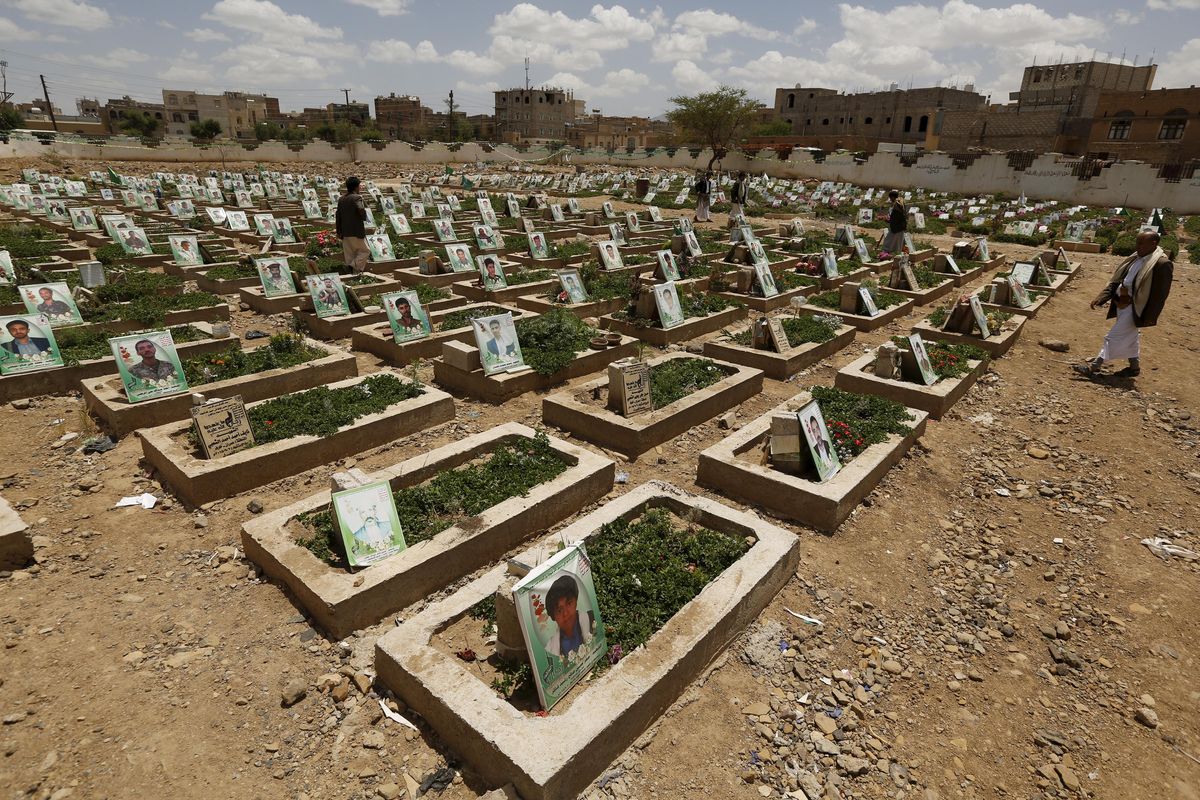A powerful country invades its neighbor. The conflict quickly becomes a brutal proxy war. A horrific humanitarian crisis ensues. While much of the world’s attention has been on Ukraine for the past few months, the civil war in Yemen is now in its eighth year. But in recent weeks signs of hope for peace have emerged, if faintly. What is the latest in a grinding conflict that has provoked what the UN calls "the world's worst humanitarian crisis"?
First, the background. In 2014, the Houthis, an ultra-conservative Muslim religious group from northern Yemen seized upon anti-government protests to storm the capital, Sana’a. The Houthis, who have long chafed against central government rule, quickly took control of broader swaths of the country. The government accused the Houthis of being an Iranian proxy and invited Saudi Arabia and the UAE, with US logistical support, to lead a military coalition against the rebels. Ever since, the two sides have been locked in a brutal war marked by grave human rights abuses on both sides. The coalition's blockade of Yemeni ports has contributed to the humanitarian crisis, while Houthi rocket attacks on Saudi Arabia have expanded the conflict beyond Yemen's borders.
The good news. The fighting has mostly stopped – for now. Both sides are largely respecting a UN-brokered ceasefire from April. Under the agreement, the Saudi-led coalition relaxed its blockade and permitted a limited number of flights to resume between Sana’a and other Arab capitals. But so far the two sides have not been able to agree on a third point, a plan for the Houthis to lift their siege of Taiz, a strategic, government-held city in the southwest.
Still, violence is at its lowest level since the war began. Civilian casualties fell by 50% in the first month of the truce, says Jasmin Lavoie of the Norwegian Refugee Council in Sana’a. “When you go home at night, you aren’t afraid of hearing airstrikes,” he says, “and if you live near a front line, you are safer today than before the truce.”
The bad news. Trust between — and even within — the various parties to the conflict is very low. The official Yemeni government is now run by a new, Saudi-backed Presidential Leadership Council that features a motley crew of politicians and warlords who don’t fully get along with each other.
The Houthis, for their part, are an insular group. They have given few clues about what kind of post-war government they’d like to see in Yemen, and it’s unclear how interested they are in truly sharing power. "The Houthis don't really do inclusiveness," says Veena Ali-Khan, a Yemen specialist with International Crisis Group.
A breakthrough on the specific issue of Taiz would go a long way to boosting trust, says Ali-Khan. But without that, she warns, both sides may quickly decide that “going back to fighting is the best possible outcome.”
On that score, one area of particular concern is the battle for the oil-rich province of Ma’arib — currently under tenuous government control. It is one of the few places where sporadic violence has continued even under the current truce.
A crude offshore time bomb. As if these challenges facing Yemen weren’t enough, an abandoned, badly rusting oil tanker off the Northwest coast threatens to break apart, spilling more than a million barrels of crude into the Red Sea. The warring parties have recently agreed to allow access to the ship for the first time, but the UN has been reduced to crowdfunding to raise the $80 million it needs to offload the oil before disaster strikes. A spill, which would be four times the size of the 1989 Exxon Valdez disaster, would not only wreak havoc on Red Sea marine life, it would send the Yemeni fishing economy belly up for a generation.
Even with the truce, the humanitarian situation is dire. Some 17 million Yemenis struggle to find food daily, says Lavoie. And that number could jump to 19 million by the end of the year as the war in Ukraine interrupts shipments of wheat that Yemen depends on. What’s more, international attention to Ukraine has drawn humanitarian resources away from Yemen and other non-European countries, he says, making it harder to finance aid missions there.
What's more, the destruction already wrought by both sides — on infrastructure, hospitals, homes, and schools — is so immense that even if there were a lasting peace tomorrow, says Lavoie, “it wouldn’t mean the end of suffering for the Yemeni people.”
Still, even with all these challenges, there is room for cautious optimism. "The parties of the conflict are meeting face to face, and there is an extension of the truce," says Lavoie. "That could lead to lasting peace, and that means hope for many -- now people can hope."
The truce is due to be renewed on August 2nd.






